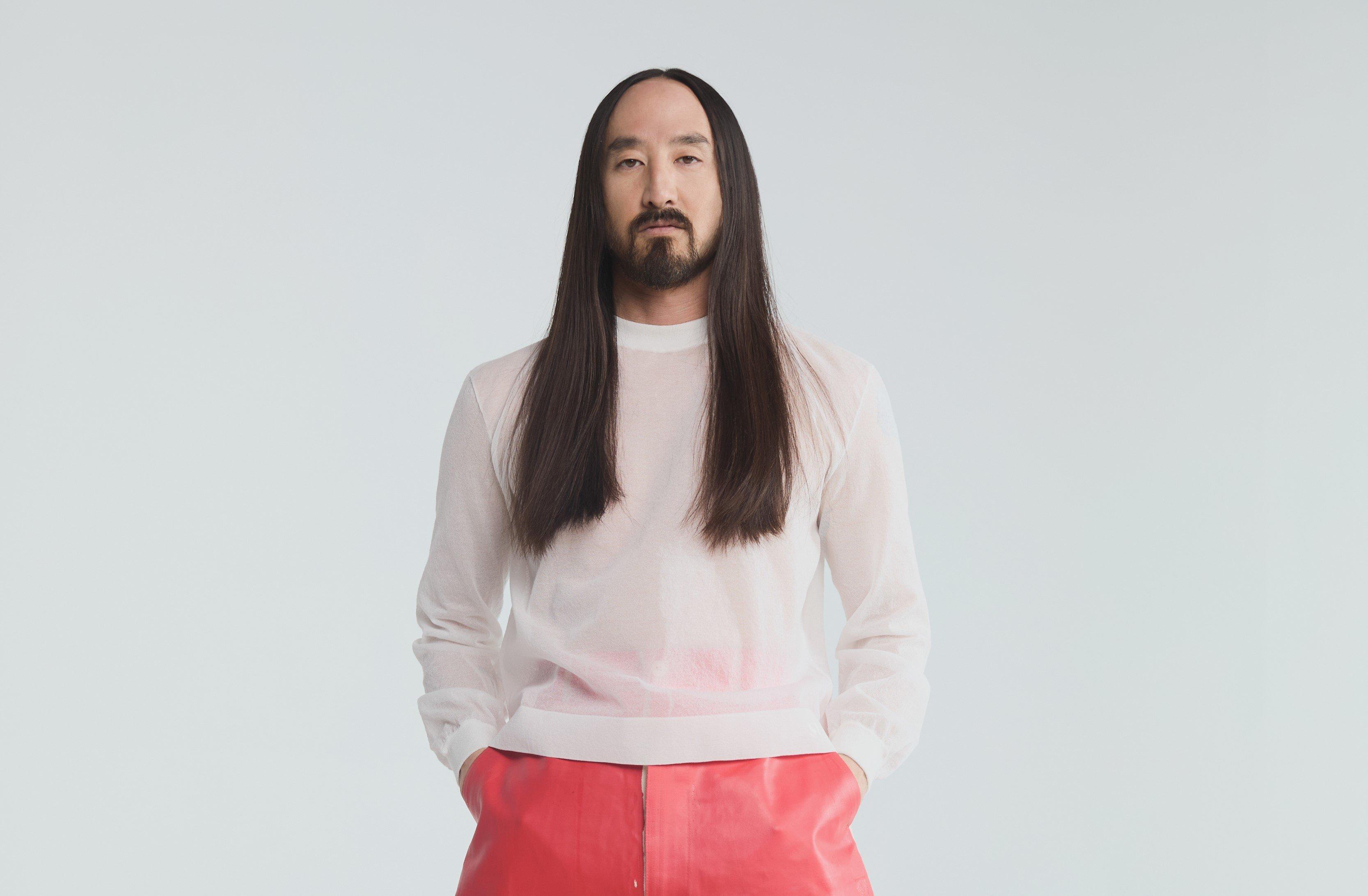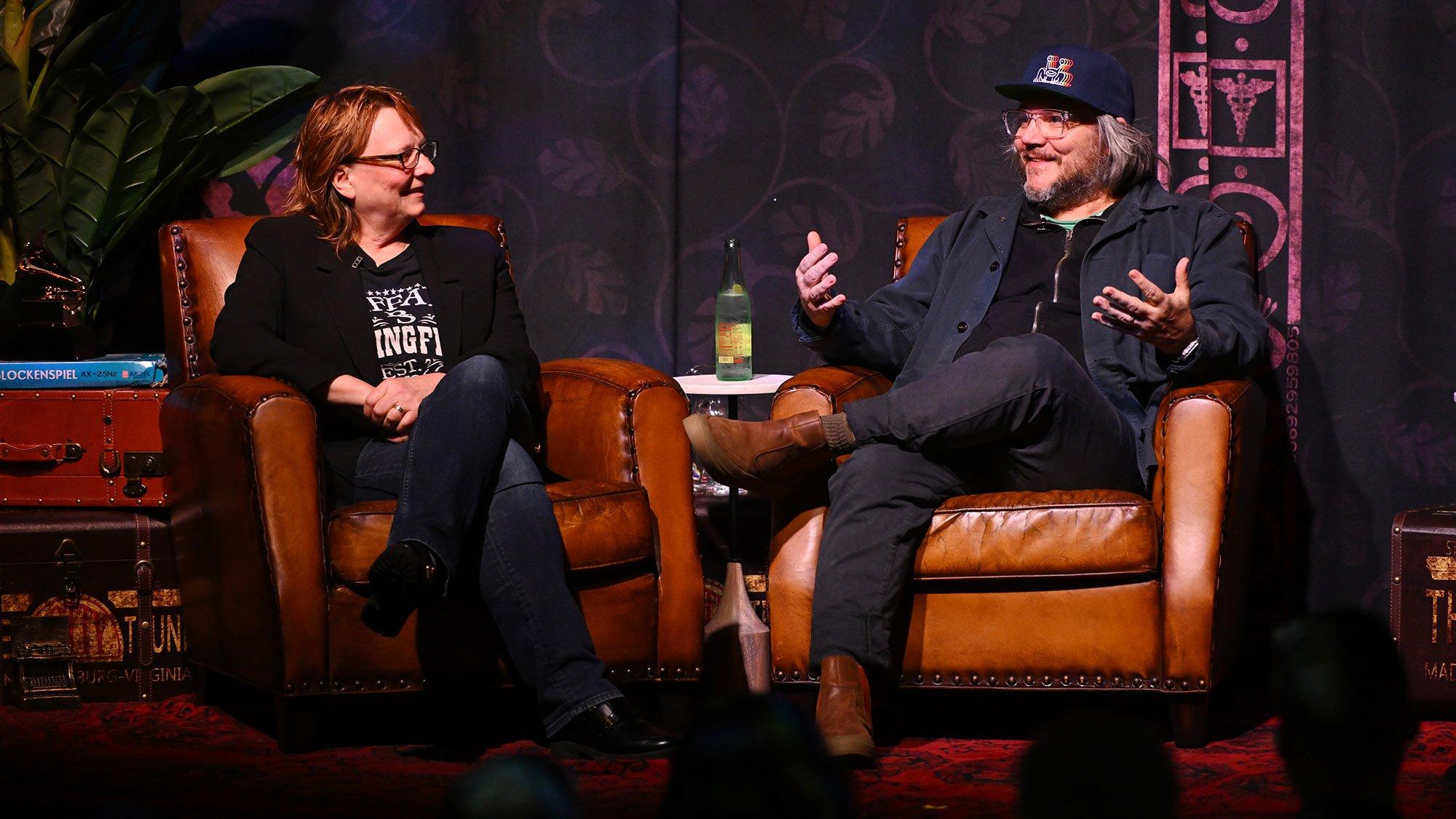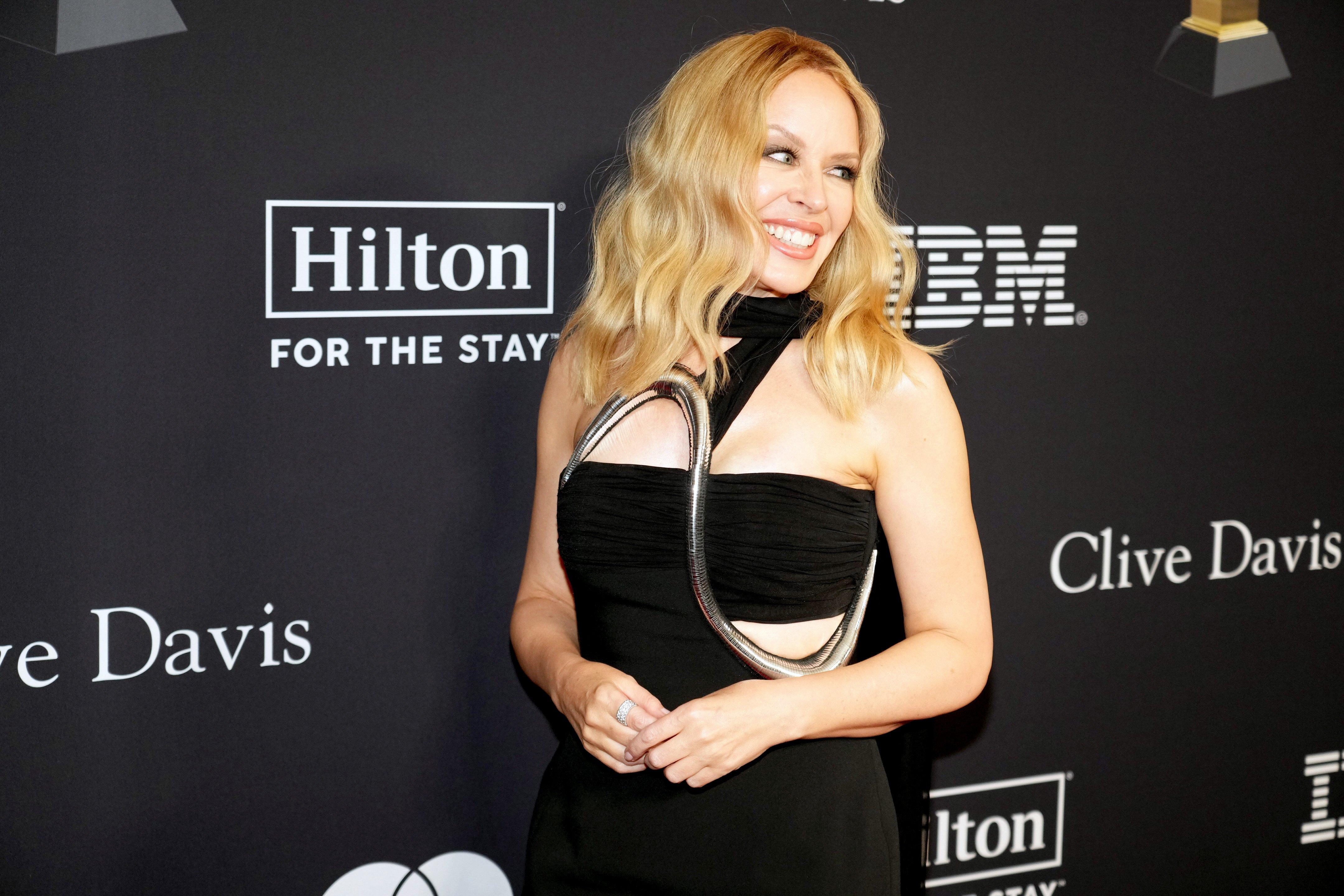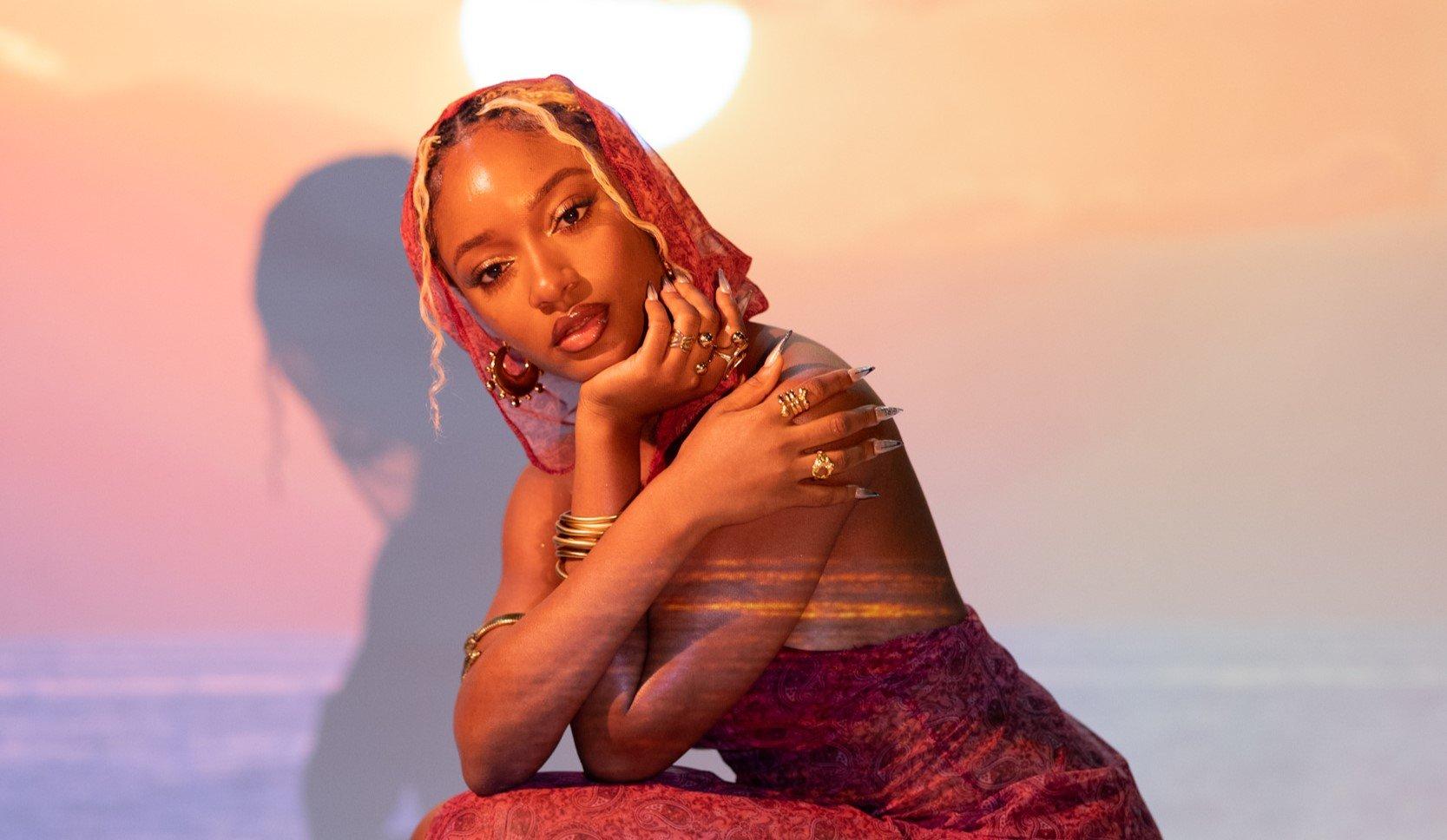Ayra Starr's rise to prominence in the realm of Afrobeats is a testament to her talent for seamlessly fusing "Gen-Z princess" flair with the wisdom of an old soul. From her inaugural 2021 EP and her debut album, 19 & Dangerous, to her presence at Music's Biggest Night, Starr has steadfastly embodied her artistic vision and accumulated experiences.
In the latter part of 2023, Starr embarked on her first headline tour, enchanting audiences with her sonorous voice and empowering blend of Afropop, R&B, and alté — skillfully interwoven with the vibrant sounds of her diverse roots. This international showcase further solidified her position as a dynamic force in the music industry.
"I'm constantly trying, constantly bettering myself, to show people I didn't come perfect," Starr tells GRAMMY.com. "I do have down and negative times where I'm in my head, I'm tired, or I'm not motivated. So, in a way, it's sort of a selfish thing where I make those songs for myself."
This unwavering dedication to craft has transformed Starr into a formidable and industrious artist whose music resonates globally. Starr's pursuit of excellence is driven by a sense of artistic selfishness that compels her to continually evolve and elevate her musical prowess.
Born in Cotonou, Benin, Starr achieved monumental success with her single "Rush," released in 2022 as part of the deluxe version of 19 & Dangerous. The track became the most streamed solo song by a Nigerian female artist on Spotify and propelled her to become the youngest African female artist to surpass 100 million views on a single YouTube video. The Nigerian singer/songwriter's remarkable talent even captured the attention of former President Barack Obama, who included "Rush" in his annual year-end playlist in 2022.
The record-breaking track is nominated for the inaugural Best African Music Performance category at the 66th GRAMMY Awards. Ahead of the 2024 GRAMMYs, Arya Starr spoke to GRAMMY.com about family, touring Europe and how her relationship with numbers is her way of documenting her growth.
This conversation has been edited for clarity.
How are you recovering after your first headline tour?
Well, there's no recovery for me anytime soon.
After the world tour, my schedule is still packed with other stuff to do. I'm enjoying it to be honest. I had a two-day break and I could sit in one place. I'm just very used to the chaos of it all. I'm a proper Lagos babe, so I'm always buzzing for what's next.
Good thing you mentioned Lagos. Your parents bounced around places; from being born in Benin to moving to Abuja and then finally settling in Lagos, how have those migrations have influenced your sound?
I feel like living in different places has really shaped my mind. I really know how to adapt to places, people as well as situations.
And you can hear that in the music. I know how to try and do different things. I know how to put different cultures and different worlds into what I'm doing. In Stability for instance, you can hear the French aspect of my life. I grew up listening to [Congolese singer and composer] Awilo and I sampled that. I mixed that with Lagos life — proper Afrobeats vibes.
Your career has featured a pattern of numbers. I read that you like the number 5, your debut album was titled 19 & Dangerous, and your tour was called 21. Why have numbers become a prominent part of your career?
To be honest, it comes very naturally to me. I don't know what it is yet. I've not tapped into that aspect of my life. I think it might make sense in the third album where I'll be able to answer this question.
But I just like numbers. Right now, my favorite number is eight. I say eight all the time. I don't even know why eight is just my number now. And with 19 & Dangerous and the tour called 21, it's just me relating everything to my age and where I am currently in life. It's just showing people that [what's happening in my life] is a very present movement and activity. I want people to know that, yeah, I did that when I was 19.
Does that mean it's sort of a brag?
It's less of me showing off and bragging and more about me being present. There were a lot of people that were 19 at that time. There were a lot of people that were 20, or 29 but could relate to what I was saying. With 21 now, I want to associate it with a feeling and less of a number.
So it's just you documenting your growth as an artist?
Exactly! I'm stealing that by the way. [Laughing]
You've toured and opened for several artists like Koffee in the past, but this is your first headline tour. How did that feel?
Amazing. I’ve been touring for a while, but doing my own [tour] was a different feeling. Like people bought tickets to see me. I'm the reason they're there.
There's no time to mess up. It's a different type of pressure. At a certain point, during the Europe tour, I was just like, I’m so relaxed because it's my stage, they're here to see me you know. If I fall down, it's all part of the vibe. It's an experience for them. They're gonna talk about it years from now.
Luckily that wouldn't happen… or did it?
Ah, it happened already but I'm over it. But it wasn't during this tour. I just got up immediately. I couldn't let that weigh me down.
And would you say that's the theme of your life? Falling and getting back up?
Definitely, I'm not afraid to be seen trying, and that's like my whole M.O. because I'm not perfect, and I want that to inspire people.
I didn't know how to do riffs and runs last year; I had to learn it. I didn't know how to learn choreography in one day, but now I'm doing that. I'm constantly trying, constantly bettering myself, to show people I didn't come perfect. I didn't come knowing any of this, and I had to learn along the way.
This is me documenting. When I say my age, I want people to be aware that I didn't know anything. I'm just figuring this out.
What memorable moments do you have from touring?
Singing "Rush," the acoustic version, with my fans. I met this fan that was pregnant and she sent her baby scan and she wanted to let me know she's naming her baby Ayra. I loved it so much, it made me so happy.
That and just spending time with my team and my friends and being on stage. Every minute of being on stage is very memorable.
Did you face any challenges while touring and how did you deal with them?
I'm human at the end of the day, and you get tired, overwhelmed, sick. I had the flu every two business days. I lost my voice. There are a lot of challenges on the road, but we can't let that stop us.
The thing about touring is that the world isn't stopping for me. I still have my family, my younger sister that wants to talk to me every day, I still have my younger brother. I have friends to keep up with. I have to be a human being outside of this. It's not necessarily a challenge; it's just something I'm aware of, and sometimes it can be hard.
Is your family happy and proud of you?
My younger brother makes music with me, so he's literally my partner. I'm also basically on the road with my family. I was with my mum in Paris. I try my best for them to experience it too.
When I'm not with them, I just feel so guilty. I want my people to feel what I'm feeling; I want them to see the countries too because we all started together. I want them to experience the exact same thing I'm experiencing. I try to spend as much time with them as possible.
My mum knows every lyric to every song. We were having a conversation, and she was referencing "Ase." I was like "OMG, mummy please, please!" So it's an everyday thing; they're in my life. They're very proud of me, but they're also kinda used to it as well. I feel like everybody expected it to happen.
You're known for your uplifting and empowering lyrics, but have you found yourself in a situation where you're feeling down and you need a little bit of Ayra?
Definitely. I do have down and negative times where I'm in my head, I'm tired, or I'm not motivated. So, in a way, it's sort of a selfish thing where I make those songs for myself. I have songs that I make for the future. Music is therapy for me.
You first went into modeling and then finding music. How proud would little Ayra be of you right now, and how much of all what she experienced made you who you are today?
She'd definitely be proud, but even right now, when I look back, I'm so proud of little Ayra too. It's because of her that I'm here now. It's because of that 16-year-old girl that didn't give up and kept going.
I wanted to do modeling because everyone told me I couldn't do it, like I'm not tall enough, and I told them, "watch me." And I ended up doing it.
How did music come into the fold from modeling?
I used to do cover [songs] on Instagram. My mum and her friends used to force me to do covers. I uploaded one cover on Instagram — I didn't even like the video. But something just kept telling me to post it and I did. Not up to 6 hours later, [Marvin Records CEO] Don Jazzy reached out. Three days later, he signed me.
Your fashion choices are constantly under scrutiny by fans, particularly by men. Did being constantly bludgeoned with such remarks regarding the male gaze affect you in any way?
I've always had a mind of my own. Growing up in different places, in different cultures, has shaped my mind. And in spite of all these influences, I'm still myself. I went to a very religious school. I wrote "Asé" when I was 15 — I had no business writing that song. So that gives you a glimpse of the kind of mindset I had at a young age.
And I still have now. I'm not really bothered about the male, female gaze, or anybody's gaze for that matter, except my own. I'm an artist to the core, and I want my style, my hair, my music, to represent how I feel. I don't really care about aesthetics, it's more about how I feel.
What was the energy like before and after finding out about your GRAMMY nomination?
I was alone in my hotel room. I remember just speaking to God, asking him to let me be nominated. If I was nominated, I'd be so grateful because I'd know that all my hard work was not in vain.
This nomination came at one of my low days. I was unmotivated, doubting myself. It was cold, and I was just tired. I was like, I just want rice and stew, abeg. I'm just tired, abeg [meaning please]. Next thing I know, I started getting calls. Tyla sent me a message. So even before I found out, people had started messaging and congratulating me. After I checked, I just knelt down and thanked God.
Meeting people like David Guetta and Kelly Rowland, both of whom you idolize, must have been an incredible experience. Which encounter was the most memorable for you?
Everything has been memorable — meeting Kelly, David. Like the Nigerian girl in me wanted to call him Mr. David, but he was like "no Ayra" and I was like "no sir but…." [Laughs.] All these people, they're human beings, and we forget that sometimes. They're regular humans with their lives, making music and doing what they love.
David was an amazing person. He was so free. After every lyric I recorded, he'd whisk me up in the air. He was so hyped and happy. Then Kelly was like the most amazing human being. I'm so blessed to know her. She is an inspiration to me and everything to me. Even before she recorded the verse, I'd loved her for a long time.
I don't know how she does it, whenever I'm feeling low or down, she just knows. She'll send me a random message or voice memo telling me to keep going. She's the most amazing human being; I love her so much. She's like my big aunty, she's my friend. She's a friend.
2024 GRAMMY Nominations: See The Full Nominees List





